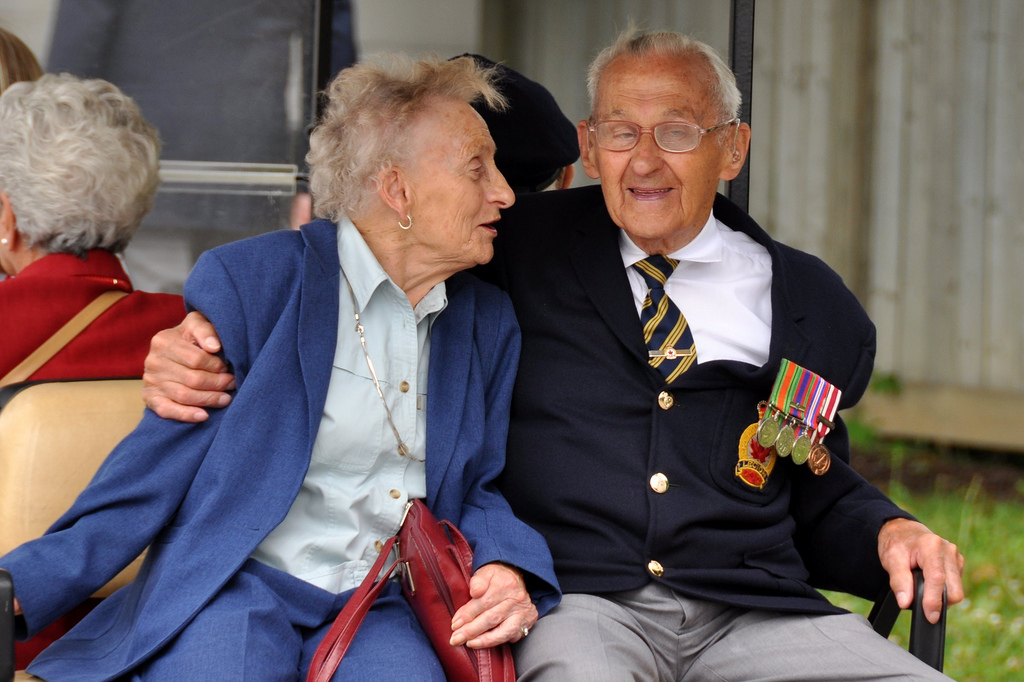During elections, political parties attempt to focus on their own strengths and the perceived vulnerabilities of their opponents. Typically, each party chooses a small number of issues and tries to hammer them home for 35 days. For the October election, I believe the betrayal of Canada’s veterans by the Harper government should become one of those high-profile issues. Nothing more accurately illuminates the true nature of this government.
The NDP could do it. It’s always stood up for the underdog. Yet whoever thought that underdogs would include our armed forces veterans under a Conservative government?
Stephen Harper’s treatment of vets shows his government in the very worst light possible. But he has brought it on entirely by himself. Focusing on this issue puts the personal responsibility of the Prime Minister front and centre. As well, it’s an issue that transcends normal voting patterns; every Canadian, including the Conservative base, wants vets to receive the full benefits we owe them — except, apparently, the Stephen Harper government.
The case against the government is staggering, almost literally beyond belief. No Canadian government in modern times has fostered such lavish rhetoric on our armed forces and delivered so few services. As outraged vets have protested for years now, Stephen Harper’s government has broken faith with them once they’ve come home. It’s not even a question of affordability. The costs of meeting veterans’ needs are comparatively trivial.
Stephen Harper loves our girls and boys in uniform when he sends them into harm’s way abroad for dubious reasons. He is indifferent to them when they return bearing their physical and psychological wounds.
This appalling record should be the heart of an intensive five-week campaign organized within the general election campaign. It should be a collaboration between opposition politicians who have been fighting the good fight on behalf of veterans and vets themselves plus their advocates. As they have repeatedly shown, indignant vets can of course speak eloquently and movingly for themselves. They can be supported by many others — veterans advocacy groups, public servants in the Veterans Affairs Ministry (if only anonymously), the federal Auditor-General, a parade of government-appointed veterans’ ombudsmen, and more. All are bewildered by the government’s failures to live up to its own rhetoric.
In an election, all participants want to influence the “ballot box question.” In this vets’ campaign, that question is straightforward: no Canadian who genuinely supports our troops can trust the Harper government.
If it were me, I’d begin with video clips of former Veterans Affairs minister Julian Fantino scolding a group of vets whom he had just stood up, then fleeing from a veteran’s wife pleading to speak to him about her husband’s PTSD.
It would include government lawyers arguing in court — at a cost of no less than $700,000 — that veterans’ were due no special treatment from their government. It would introduce a legless vet who had to regularly prove his legs had not grown back before his benefits could be renewed. It would show that the Conservatives had failed to spend $1.13-billion of the funds allocated to vets’ benefits since they came to power, while benefit claims were being reduced or outright rejected.
We would be reminded of those $9 million in government ads touting how splendidly the government treats vets. And we’d meet the three Harper ministers who last December announced a $200-million program over six years of desperately needed mental health services for vets. Then the truth: six years was a bald-faced lie. The funding covered 50 years, not six, and the ministers knew it.
A new veterans’ affairs minister is desperately tries to reverse nine years of double crosses, with belated help from this week’s budget. Yet new information continues to outrage while new outages continue. Just last week the Globe and Mail reported that “Senior Veteran Affairs managers have warned every year since 2009 that the department may not have the capacity to meet the needs of its clients, even as the federal government slashed the size of the staff and failed to spend millions of dollars allocated for veterans’ services.”
Then this week, yet another disparaging report was released, this one by Canadian Forces Ombudsman Gary Walbourne. Mr. Walbourne revealed that the families of soldiers who die in the line of duty, or by suicide, are ignored when the Defence Department investigates the incident. These investigations “are often a source of frustration and confusion for families, who complain about being kept in the dark and even accuse the military of using the inquiries as a way to cover up misdeeds.” Even today the government refuses to share whatever it knows about the mysterious death by friendly fire of Sgt. Andrew Doiron six weeks ago.
Under Stephen Harper, Veterans Affairs ministers come and go. So far there have been five. Only the Prime Minister remains constant — and his government’s treatment of veterans. This sits squarely on his shoulders, and the election campaign should remind Canadians of this fact.
This article originally appeared in the Globe and Mail.



